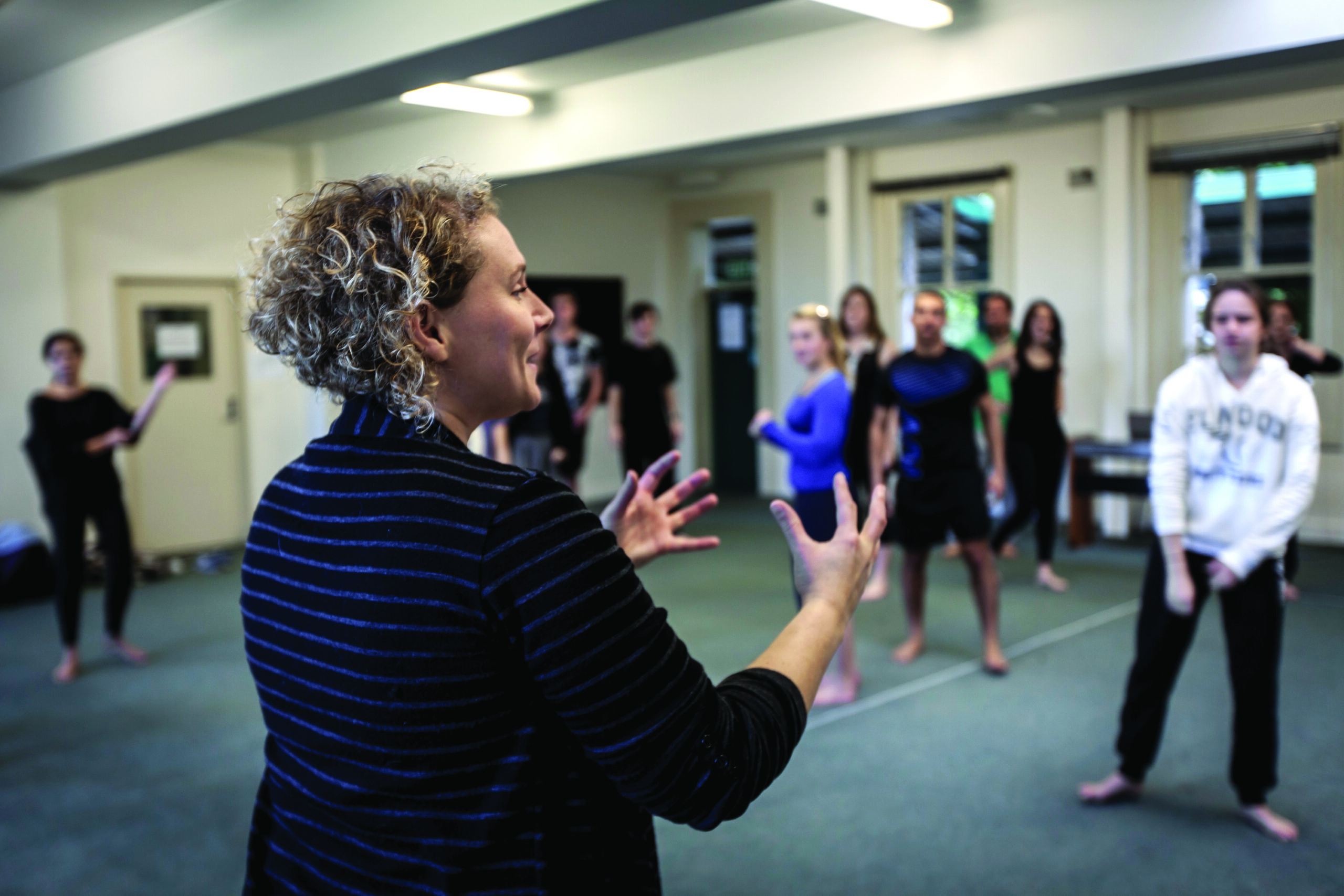Actors actually have a great deal of agency when it comes to how they set goals, choose auditions, and decide whether or not to commit to projects. If you’re a burgeoning professional actor, it may feel confusing to decide which direction to go in terms of how your pursue your work opportunities or commit your time.
One way of making auditions easier on yourself is to spend some time before you even submit for auditions in deciding what kind of acting roles you feel would be the right fit, and why. Think beyond your dream role to the kinds of productions you’d like to be a part of, the kinds of teams you’d like to work with, and the kinds of scripts that set you on fire. Once you have this mental picture, it may feel easier to make decisions about how to invest your time and energy when pursuing work as an actor.
To help you focus your time and energy, we’ve compiled some questions to ask yourself about your professional goals. While often the primary challenge is simply to book work, sometimes actors find themselves overwhelmed with audition submissions, or in the dilemma of choosing between jobs, or wondering whether they should turn down a role. Some actors even find themselves in the enviable position of having one or more projects to consider.
Whatever your dilemma, the following can help you sort through your goals when it comes to your acting roles.
Which roles make the most of you and which roles can you make the most of?
One of the most important things to understand as an actor is the unique set of traits you bring to the table. , which can have a direct effect on your marketability. While these traits may not always reflect your full goals and your full range as a performer, knowing a bit about type can help you focus your job search and understand the most effective ways to present yourself to casting directors, agents, and producers. An exploration of your comedy chops or something as simple as “type” can be powerful tool when used with expertise, precision, and strategy.
Think of Goldie Hawn working with the “dumb blonde” trope to build an incredibly rich career, eventually using her success to break barriers and create her own work. Do you make a good dumb jock or are you more of a funny best friend? Are you comfortable as the hot blonde or are you a perfect fit for the role of nerdy guy or girl? Know your strengths, know your industry, and play to those strengths.
The good news is that with experience, you’ll eventually have more range to play various types. To learn more about finding your type, see our piece on how to find your type as an actor.
Is the role exciting to you?
When starting off, you’ll probably be willing to take on any acting gig that’s right for you just to get experience under your belt. However, one way of keeping yourself motivated as an actor is by joining projects that you actually think you’ll love.
If comedy is your thing, look for acting roles in this category that allow you to demonstrate your passion for making people laugh. Find a role you’re so enthused about that you can’t stop talking about the film or play when talking to others.
How is the pay?
Money can be an ugly word when your love of acting alone is the reason you chose this career path. But as many struggling professionals will tell you, being an actor comes with its own set of economic challenges. Not everyone out there is making millions per movie.
The best thing you can do is figure out a budget for your life as an actor. There’s nothing wrong with rejecting a role if the pay means you’ll starve to death and miss paying rent. With good planning, you can figure out a budget so you know which roles will work for your plan and which will leave you stressing.
Is the script any good?
Like we’ve mentioned, it can be tempting jumping into any role just for the cash or experience. But if the project ends up panned for reasons outside of your acting skills, it can be a devastating blow.
One way to avoid this is by learning how to study a script in order to determine if the film or play is going to be a stinker. Actors reject roles all the time after analyzing the script and deciding it isn’t the right choice for their time and effort.
Is the role something you want to be known for?
Being typecast can be a nightmare for some people, but only if you’re repeatedly getting offered acting roles that you’re not happy with. If your dream is to be a leading man or lady, it can be a bummer always playing a supporting character. If you already find yourself in this position, here are several tips to help you recover.
Is it an acting role you’ll learn from?
The fact is, most of the best actors and actresses of our time went to some form of acting school. It’s there that you’re given the tools and resources needed to decide if you really have what it takes to act for a living. Seeking out specialized training, such a the Acting for Film programs at NYFA, can also help you stand out from the crowd when hunting for a role, especially if you invest in advanced training to further sharpen your skills.
But just like any college degree or program, school is not the same as the real world. Only by being involved in real world projects can you get a taste of what acting is truly about. We suggest targeting roles that will contribute to your growth as an actor. This can include working with experienced actors and directors, or it can simply be a project that’s unique and will force you to try new things.
What are your professional goals as an actor? What kind of acting roles do you aspire to? Let us know in the comments below!



